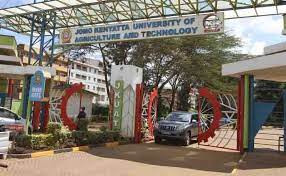Egerton University’s plant is giving hope to both students and staff of the premiere agricultural training college. The facility, managed by Egerton University Investment Company, is one of the institution’s income generating projects.
It is situated close to the university’s Science Complex and provides value addition services to milk and milk products from the 20,000 acre Ng’ongogeri Farm, which houses more than 500 dairy cattle. JKUAT is also producing yoghurt
According to the university website, the dairy production unit collects close to 3,000 litres of milk daily. The university encourages students to come up with their own well researched dairy products and start their own businesses.
Already, hundreds of students taking dairy, food science and technology studies are reaping the benefits.
The students formed an association which apart from providing cheap labour to the yoghurt plant, has been using some of the resources and knowledge acquired in lecture halls to produce dairy products such as yoghurt and cheese.
John Waweru, a graduate from the university, owns a processing firm, Winnas Dairies, worth over Sh800,000. Waweru, 29, said he used the skills he learnt at Egerton to start the firm.
“I started the processing firm in early 2013, two years after graduating from Egerton University. It is now worth about Sh800,000,” he said.
He said he noticed he could buy milk from his father who had close to 60 dairy cattle at a lower price and add value to it as he had learnt at Egerton University.
Several other students and graduates are reaping big from what they learnt at Egerton’s yoghurt plant. Some students are also buying dairy products in bulk at a cheaper price and selling them to shop owners and vendors at a slightly higher price. One such is Jared Opinya, a nutrition graduate.
He says he made, packaged and sold the Egerton yoghurt to other students to raise money to pay school fees. He ended up building a major business foundation that acts as a source of income two years since he graduated.
According to the university’s website, the plant, which was acquired and established in 1978 through the help of Unicef, FAO, Kenyan government, Guldford and Humbledon Villages in England, has helped train technologists from ten other countries, including Ghana, Nigeria, Tanzania, Ethiopia, South Africa and Namibia.
But Egerton is not alone. Jomo Kenyatta University of Agriculture and Technology (JKUAT) in September last year started producing yoghurt.
The university partnered with local firm Tropikal Brands Africa to commission a dairy plant that produces “child-friendly” yoghurt for local markets. The university announced that it would invest Sh350 million in a joint venture with Nissin Food Holdings Company Limited of Japan in putting up a food factory mainly focused on manufacturing instant noodles.
Whereas Egerton yoghurt brands still struggle to move past Nakuru County markets, JKUAT is selling its brand to supermarkets throughout the country.
It is projected that both Egerton and JKUAT will perform better with the new support being received from the government and different entities in the private sector.
Stay informed. Subscribe to our newsletter
The 2017-2018 budget has increased funds meant to promote research in institutions of higher learning.
Varsities diversify income sources
Public universities have been increasing investment in a range of sectors.
A few years ago, Moi University acquired the collapsed Rift Valley Textile Mills East Africa from the government, reviving it to become a thriving enterprise, which is now producing products such as flannels, flags, bags, bedding and designer clothes.
Kenyatta University has developed a “University City” (Unicity) comprising a multi-million shilling shopping mall, a hyper-market, retail shops, banks, ATM points and a fuel station.
The University of Nairobi also owns more than 1,000 acres of land on the outskirts of the city which it uses to breed top grade cattle and poultry, and grow fruits and vegetables.
Hundreds of workers are employed on the farm which, also provides students with opportunities for practical lessons.
 The Standard Group Plc is a
multi-media organization with investments in media platforms spanning newspaper
print operations, television, radio broadcasting, digital and online services. The
Standard Group is recognized as a leading multi-media house in Kenya with a key
influence in matters of national and international interest.
The Standard Group Plc is a
multi-media organization with investments in media platforms spanning newspaper
print operations, television, radio broadcasting, digital and online services. The
Standard Group is recognized as a leading multi-media house in Kenya with a key
influence in matters of national and international interest.
 The Standard Group Plc is a
multi-media organization with investments in media platforms spanning newspaper
print operations, television, radio broadcasting, digital and online services. The
Standard Group is recognized as a leading multi-media house in Kenya with a key
influence in matters of national and international interest.
The Standard Group Plc is a
multi-media organization with investments in media platforms spanning newspaper
print operations, television, radio broadcasting, digital and online services. The
Standard Group is recognized as a leading multi-media house in Kenya with a key
influence in matters of national and international interest.








